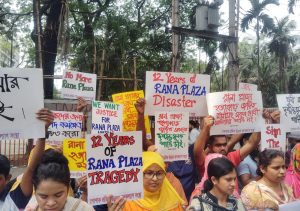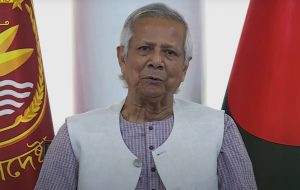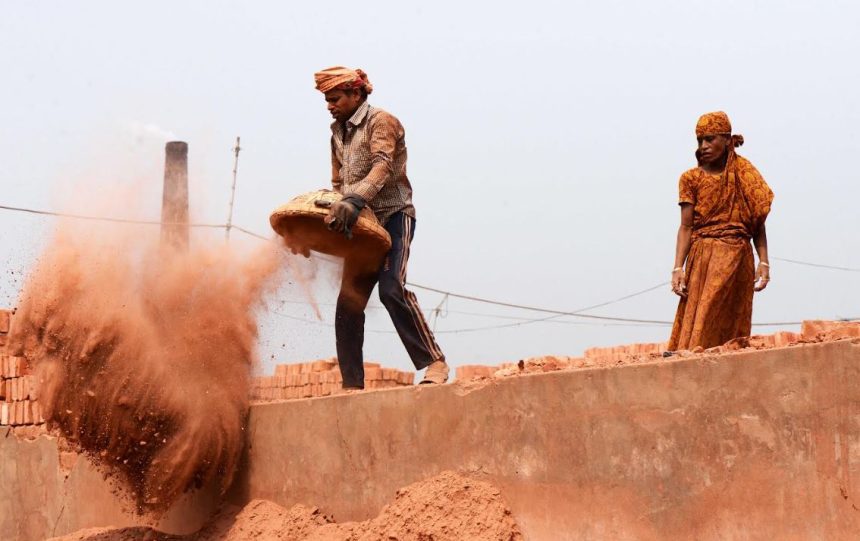This year’s May Day, the first since the July mass uprising, serves as a renewed reminder of the struggle for an equitable society. It underscores the need for social reform by eliminating divisions and disparities among classes.
Just days ago, Bangladesh solemnly remembered the Rana Plaza tragedy of April 24, 2013 — a ‘systematic massacre’ that remains unpunished even after a decade. The collapse of a single building killed 1,138 garment workers and injured nearly 2,500 more — the worst factory disaster in history in terms of casualties.
The tragedy shook the global conscience regarding worker safety. Global garment buyers and international human rights organisations pressured the Bangladeshi government to improve safety standards in the apparel sector. In response, European buyers formed the Accord while American companies launched the Alliance.
The Accord operated in Bangladesh until 2020, during which 92% of affiliated factories underwent safety upgrades. The Alliance remained active until 2018, covering improvements in 90% of the factories under its scope. Mohammad Hatem, president of the Bangladesh Knitwear Manufacturers and Exporters Association (BKMEA), told Times of Bangladesh, “We have now ensured the highest safety standards in our apparel factories.”
Hatem further claimed, “Compared to other countries, Bangladesh’s garment factories are the safest and greenest.”

Nevertheless, the demand for a minimum living wage for all workers remains. Agricultural and day labourers — both men and women — continue to demand equal pay.
Bachchu Bhuiyan, president of the Multi-Sector Workers and Hawkers Association, told Times of Bangladesh that they have consistently demanded a minimum wage of Tk 25,000 for all workers, including those in garment factories. “Because,” he said, “at today’s market rates, no worker can support a family of four with less than that.”
Bhuiyan accused the government of ignoring worker demands.
“In November 2023, the government arbitrarily fixed the minimum wage for garment workers at Tk 12,500, disregarding all labour unions. Most factories haven’t even implemented that yet. As a result, workers continue to live in subhuman conditions.”
He added that their other demands include proper housing and healthcare for all types of workers, along with the introduction of special rationing benefits.
Message from the Chief Adviser
In his message on the occasion of International Workers’ Day, Chief Adviser Muhammad Yunus said, “May Day is not just a calendar date. It is a source of inspiration for the struggle to realise workers’ rights. On this historic day, we pay humble respect and gratitude to all hardworking people — especially those whose sacrifices earned us the recognition of labour rights.”
He added, “May Day is crucial in building strong labour-management relations to advance our economy. This year’s theme — ‘Workers and Employers United, Together We Rebuild the Nation’ — is particularly significant for our sustainable development. I firmly believe that workers and owners are complementary to one another, and only their joint efforts can build a strong, self-reliant, and prosperous Bangladesh.”

Muhammad Yunus emphasised, “Whether in garments, agriculture, industry, construction, transport, or technology — every sector’s progress is built on the intelligence and tireless labour of both workers and owners. To truly rebuild this nation, we must strengthen unity, mutual respect, and trust. If we continue this spirit of cooperation, the dream of building an equitable new Bangladesh — as envisioned in the July-August mass uprising — will become a reality.”
He noted that this year, alongside May Day, the government is also observing National Occupational Health and Safety Day 2025. In a separate message, he said, “We are committed to ensuring workers’ recognition and social protection. A safe and healthy workplace is not only a right for workers but also a prerequisite for industrial and economic development. Improving worker welfare will benefit the entire economy. I believe that strong labour-management partnership will further accelerate our nation’s progress.”
May Day: History
History shows that from the birth of capitalism, deprived and agitated workers gradually became conscious of their rights and began forming unions — a demand of the time. In this spirit, in 1884, workers in Chicago united to demand reduced working hours, fair wages, and a dignified life. The labour movement demanded the workday be reduced from 12 to 8 hours and proposed May 1 as International Workers’ Day.
On May 4, 1886, a massive workers’ rally took place at Hay Market Square in Chicago, surrounded by police. A bomb thrown from the crowd killed a police officer, prompting open fire from police, resulting in the deaths of 12 workers.
Six labour leaders were hanged after a controversial trial, another committed suicide, and one was sentenced to 15 years of hard labour.
During the centennial of the 1789 French Revolution in 1889, a landmark socialist conference called for a united global labour movement to eliminate wage discrimination and demand an 8-hour workday. It was then officially declared that May 1 would be observed as International Workers’ Day.
Since then, May Day continues to call for labour rights across the world.


